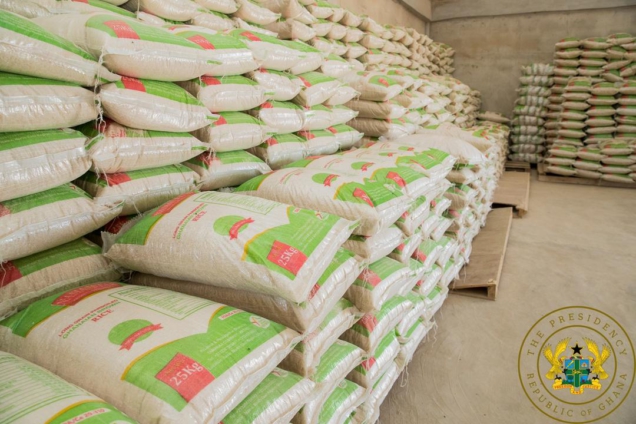- … This must stop!!!
In Ghana, up is down and down is up. This is my way of trying to remain sane in this country. Every day one unbelievable issue or another crops up and baffles the sensibilities out of me, but I always go to my mantra and try to weather through it and hope it passes by.
But one issue that I am, unfortunately, unable to comprehend is government’s inability to be decisive in taking a decision on removing the 50 percent discount on benchmark value of 43 imported items. Now here is my confusion: most of the items that are to be affected – including poultry, rice, sugar, palm oil, toilet paper, machetes and mosquito coils – can be and are being produced locally.
Take this scenario: you are a rice farmer, but at the end of the day your 25kg bag of rice is more expensive than that of the imported product – and not because the imported product is cheaper at source but simply because government has reduced the duties, levies and other port charges by 50 percent.
This is the plight of local manufacturers, farmers, processors and distributors across the length of breadth of the country.
Already, this policy – which several civil society organisations, associations and local industry players have kicked against since its introduction in 2019 – has resulted in job-losses in the local palm oil production and rice farming sectors. With COVID-19 still in play, many local manufacturing businesses are unable to produce at full capacity and have to contend with this policy as well.
After announcing the removal of this policy in the last quarter of 2021, there were the expected uproar from importers and expected jubilation from local producers, farmers and all who work in the local production value chain.
Government stood its ground despite the pressure from importers of these finished products, and I was elated that this policy was going to be removed – only for a quick reversal of the decision two days into implementation, and an indefinite suspension for ‘further stakeholder consultation’.
Indecision on the part of any government does not bode well in the eyes of citizenry – and Ghana’s government is no different.
What this reversal means, in my opinion, is simple: government does not have the courage to stand up to importers of these finished products. It fears repercussions that are political in nature and not necessarily economic. Because, economically, this reversal is good news in the medium to long-term.
Yes, in the short-term, prices of goods will increase; but we were purchasing these products when the discount policy was not present in the first place.
Negative impact on gov’t’s own industrialisation policies
The introduction of this policy negatively impacts government on multiple fronts: defeating government’s own One District, One Factory (1D1F) initiative. If the cost of a pack of juice from Eko Juice is more expensive than one imported from Europe with the same qualities, as a consumer don’t expect me to put nationalism in front of my pocket.
Planting for Food and Jobs (PFJ) will not grow to its expected potential when there’s no avenue to process produce from farms; because, at the end of the day, the processed product will be more expensive than the imported one.
And if PFJ and 1D1F is not living up to their potentials, where are the jobs for graduates of government’s own flagship education programme, Free Senior High School (FSHS)? There’s no way an importer can employ an equal number or more employees than a manufacturer.
Do not get me wrong. I have no quibble with imports. No economy can survive without imports. Even the world’s most closed economy of North Korea relies heavily on imports from China to survive.
But the fact also remains that you cannot develop an economy via imports only. There must be a fine balance between imports and exports – with significant emphasis on exports. As a liberalised economy, whereby our currency dances to external tunes, the key means via which to keep such dances in check is actually to export more finished products and not import them.
We are in January and looking at February tomorrow, and the central bank has just announced some US$450million to cushion the local currency. If we exported more than we import, or even operated on equal footing, we wouldn’t require the Bank of Ghana to step in.
It remains a shock that government knows the numerous ways to help local producers – and the removal of this benchmark policy is one of them – but unfortunately lacks the will to act and take decisions which will develop this economy today, tomorrow and forever.










